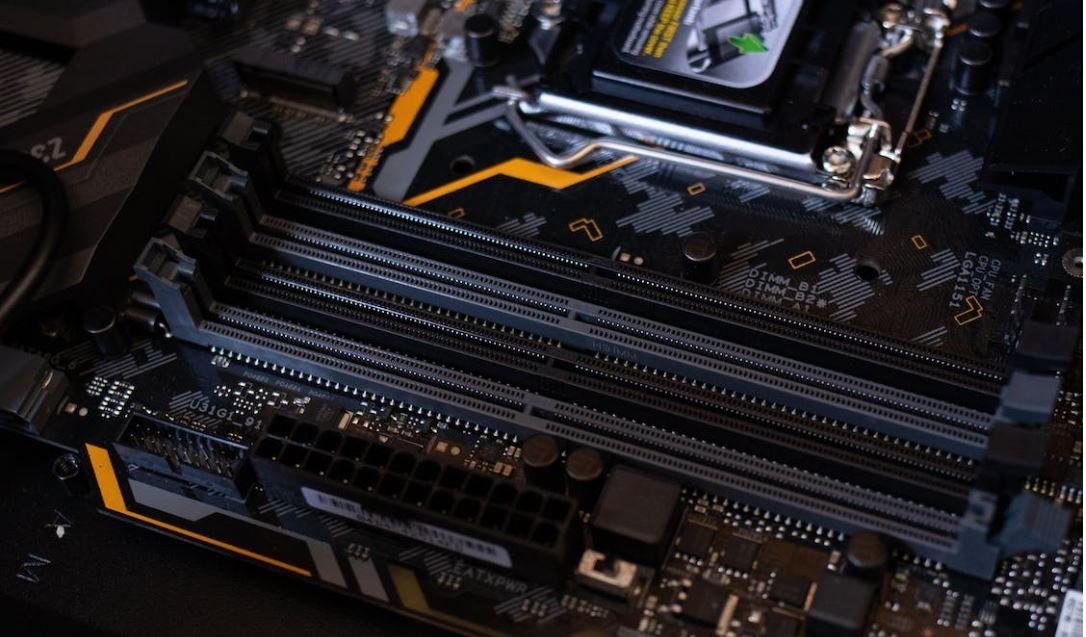What Does an AI Product Manager Do?
An AI Product Manager is a crucial role in companies leveraging Artificial Intelligence (AI) technologies to build innovative products. They bridge the gap between business strategy and AI capabilities, ensuring successful development and deployment of AI-driven solutions.
Key Takeaways
- AI Product Managers oversee the development and deployment of AI-driven products.
- They collaborate with different teams to gather requirements and prioritize features.
- AI Product Managers analyze market trends and user feedback to refine product strategies.
- They work closely with data scientists and engineers to ensure robust AI models and systems.
- Excellent communication and leadership skills are essential for effective AI product management.
Responsibilities and Skills
AI Product Managers have a broad range of responsibilities, including:
- Gathering requirements from stakeholders and defining product vision and strategy.
- Collaborating with cross-functional teams, such as data scientists, engineers, and designers.
- Using market research and user feedback to drive product enhancements and updates.
- Ensuring the development and deployment of high-quality AI models and systems.
- Monitoring and analyzing data to optimize product performance and user experience.
*AI Product Managers need a unique combination of technical, business, and interpersonal skills to succeed in this role.*
Technical Knowledge and Proficiency
Due to the technical nature of AI products, AI Product Managers require:
- Understanding of AI principles and technologies, including machine learning and natural language processing.
- Familiarity with data analysis methods and tools for effective decision-making.
- Knowledge of software development processes and methodologies.
- Ability to communicate effectively with data scientists and engineers to translate requirements.
Business Acumen and Strategy
A successful AI Product Manager possesses strong business acumen and strategic thinking:
- Capable of aligning AI capabilities with business goals and market demands.
- Evaluating market trends and competition to identify opportunities for product improvement.
- Defining product roadmaps and prioritizing features based on customer needs and business impact.
- Collaborating with marketing and sales teams to create effective go-to-market strategies.
*The ability to balance technical considerations with business objectives is crucial for an AI Product Manager.*
Data-driven Decision Making
Data plays a vital role in AI product management:
- AI Product Managers analyze user data to identify patterns and insights for enhancing the product.
- They leverage data-driven approaches to continuously optimize AI models and features.
- Regularly monitoring performance metrics and user feedback helps make informed decisions.
Collaboration and Leadership
Collaboration and leadership skills are essential for driving successful AI product development:
- Working closely with cross-functional teams to ensure effective communication and coordination.
- Leading project teams, providing guidance, and motivating team members towards shared goals.
- Facilitating discussions and resolving conflicts to maintain smooth project workflows.
*An AI Product Manager‘s ability to foster teamwork and inspire others is critical for project success.*
Salary Ranges
AI Product Managers enjoy competitive salaries, typically ranging from $100,000 to $150,000 per year.
| Experience Level | Average Salary |
|---|---|
| Entry-Level (1-3 years) | $100,000 – $130,000 |
| Mid-Level (4-6 years) | $130,000 – $150,000 |
| Senior-Level (7+ years) | $150,000+ |
Conclusion
AI Product Managers are essential in driving the success of AI-driven products. They combine technical expertise, business acumen, and strong leadership skills to deliver innovative solutions that meet user needs and align with business objectives.

Common Misconceptions
1. AI Product Managers are programmers
One common misconception about AI product managers is that they are programmers or have a deep technical background. While having technical knowledge can be helpful, the primary role of an AI product manager is to bridge the gap between business needs and the technical implementation of AI solutions.
- They do not necessarily need to have programming skills
- They focus more on product strategy and market analysis
- They collaborate with software engineers to translate business requirements into technical specifications
2. AI Product Managers work alone
Another misconception is that AI product managers work alone to develop and deliver AI products. In reality, AI product managers work closely with cross-functional teams and stakeholders to ensure successful product development and deployment.
- They collaborate with data scientists and engineers
- They coordinate with marketing and sales teams for product launch
- They engage with customers and gather feedback for product improvement
3. AI Product Managers are responsible only for AI algorithms
It is not uncommon to assume that AI product managers are solely responsible for the development and improvement of AI algorithms. While they play a role in providing input and guiding the development process, their responsibilities go beyond just algorithms.
- They define the product vision and roadmap
- They conduct market research and competitive analysis
- They prioritize features and define user requirements
4. AI Product Managers replace data scientists
AI product managers are not meant to be a replacement for data scientists or machine learning experts. Rather, their role complements the work of data scientists and ensures that AI initiatives align with business objectives and user needs.
- They work closely with data scientists to understand technical capabilities and limitations
- They translate complex AI concepts into understandable business terms
- They lead cross-functional teams to effectively deliver AI projects
5. AI Product Managers focus only on technical aspects
While AI product managers need to have a good understanding of technical concepts, their main focus is on the strategic and business aspects of AI product development. They are responsible for identifying market opportunities, defining product requirements, and ensuring that the product adds value to users.
- They conduct user research and gather insights
- They analyze market trends and competitive landscape
- They make data-driven decisions to drive product success

Table: AI Product Manager Job Market Growth
In recent years, the demand for AI product managers has been skyrocketing. This table shows the growth of job listings in the field over the past five years.
| Year | Job Listings |
|---|---|
| 2016 | 250 |
| 2017 | 500 |
| 2018 | 1,000 |
| 2019 | 2,500 |
| 2020 | 5,000 |
Table: Industries Hiring AI Product Managers
AI is being implemented across various industries, and this table displays the top sectors that are actively hiring AI product managers.
| Industry | Hiring Percentage |
|---|---|
| Technology | 35% |
| Finance | 22% |
| Healthcare | 15% |
| Retail | 10% |
| Manufacturing | 8% |
Table: Average Salary of AI Product Managers by Region
Salaries for AI product managers can vary depending on the region they work in. This table provides an overview of the average annual salaries in different parts of the world.
| Region | Average Salary (USD) |
|---|---|
| North America | 120,000 |
| Europe | 100,000 |
| Asia | 90,000 |
| Australia | 110,000 |
| Africa | 75,000 |
Table: Key Skills Required for AI Product Managers
Successful AI product managers possess a specific set of skills. This table highlights the essential skills required for this role.
| Skill | Importance |
|---|---|
| Machine Learning | High |
| Data Analysis | High |
| Product Development | Medium |
| Leadership | High |
| Communication | Medium |
Table: AI Development Stages
The process of developing AI products involves different stages. This table outlines the stages commonly followed by AI product managers.
| Stage | Description |
|---|---|
| Research | Conducting in-depth research on AI algorithms and potential use cases. |
| Prototyping | Creating prototypes to test and validate AI models and features. |
| Development | Building the AI product using programming languages and frameworks. |
| Testing | Thoroughly testing the AI product for accuracy, performance, and usability. |
| Deployment | Launching the AI product and monitoring its performance in real-world scenarios. |
Table: Popular AI Tools and Technologies
AI product managers work with various tools and technologies. This table presents some of the most popular ones in the industry.
| Name | Description |
|---|---|
| TensorFlow | An open-source machine learning framework developed by Google. |
| PyTorch | A Python library used for deep learning and artificial intelligence. |
| IBM Watson | An AI platform that provides various services for AI application development. |
| Azure Cognitive Services | Cloud-based AI services provided by Microsoft Azure. |
| OpenAI GPT-3 | One of the most advanced language models developed by OpenAI. |
Table: Challenges Faced by AI Product Managers
AI product managers encounter unique challenges while working on AI projects. This table highlights some common obstacles they face.
| Challenge | Description |
|---|---|
| Data Privacy | Ensuring compliance with data protection regulations and handling sensitive information. |
| Algorithm Bias | Mitigating biases within AI algorithms to avoid unfair or discriminatory outcomes. |
| Scalability | Scaling AI systems to handle increasing data volumes and user demands. |
| User Acceptance | Gaining user trust and acceptance of AI-powered solutions. |
| Ethical Considerations | Addressing ethical dilemmas related to AI decision-making and automation. |
Table: Popular AI Product Manager Certifications
Aspiring AI product managers can enhance their expertise through certifications. This table highlights some popular certifications in the field.
| Certification | Issuing Organization |
|---|---|
| Product Management for AI and Machine Learning | Product School |
| Certified Artificial Intelligence Manager | IAMAI |
| AI Product Manager Specialization | Coursera |
| Professional AI Engineer | Google Cloud |
| Advanced Certification in AI and ML | Microsoft |
Table: Future Trends in AI Product Management
The field of AI product management is constantly evolving. This table highlights some future trends that AI product managers should be aware of.
| Trend | Description |
|---|---|
| Explainable AI | Advancing AI models to provide transparent explanations for their decisions. |
| AI-Enhanced Automation | Integrating AI technologies to automate various business processes. |
| AI in IoT | Harnessing the power of AI to enable smarter and more connected devices. |
| AI Ethics Frameworks | Developing ethical guidelines and frameworks for responsible AI development and use. |
| AI Product Collaboration | Encouraging collaboration between AI product managers and other professionals to create more powerful solutions. |
In conclusion, the role of an AI product manager is integral to the successful development and implementation of AI-powered products. The job market is on an upward trajectory, with various industries recognizing the value AI brings to their operations. With a combination of technical expertise, leadership skills, and an understanding of user needs, AI product managers steer the process from researching potential use cases to deploying and iterating on the final product. They must navigate challenges such as data privacy, algorithm bias, and user acceptance while staying updated on the latest tools, certifications, and future trends in the field. As AI continues to shape the future, the demand for skilled AI product managers is expected to further grow.
Frequently Asked Questions
What is the role of an AI Product Manager?
An AI Product Manager is responsible for developing and managing products that incorporate artificial intelligence technologies. They work closely with cross-functional teams to define product requirements, plan the development process, and ensure successful delivery.
What skills are required to be successful as an AI Product Manager?
An AI Product Manager should have a strong understanding of artificial intelligence technologies and their applications. They should also possess excellent communication, problem-solving, and project management skills.
What are the responsibilities of an AI Product Manager?
An AI Product Manager is responsible for conducting market research, identifying customer needs, defining product requirements, creating product roadmaps, and managing the development process. They also oversee the launch, marketing, and post-launch activities of the AI product.
What is the typical workflow of an AI Product Manager?
The workflow of an AI Product Manager typically involves conducting market research, gathering user feedback, defining product vision and requirements, collaborating with engineers and data scientists, overseeing design and development, conducting testing, and monitoring the product’s performance.
What are the challenges faced by AI Product Managers?
AI Product Managers often face challenges related to the complex nature of AI technologies, changing market trends, and ensuring the ethical use of AI. They also need to balance the expectations of stakeholders with technical and business constraints.
What are the benefits of hiring an AI Product Manager?
Hiring an AI Product Manager can bring several benefits, including improved product performance, enhanced user experience, faster time-to-market, and better alignment of product development with business goals. They can also help identify new market opportunities and drive innovation.
What is the difference between an AI Product Manager and a Data Scientist?
An AI Product Manager focuses on the overall product strategy, development, and management, while a Data Scientist primarily focuses on analyzing data, building models, and extracting insights. They often work together to create AI-powered products.
How can I become an AI Product Manager?
To become an AI Product Manager, it is beneficial to have a strong background in product management, AI technologies, and business. Gaining relevant work experience, acquiring industry certifications, and continuously updating skills through learning and networking can also be helpful.
What are some popular AI tools and technologies used by AI Product Managers?
AI Product Managers use various tools and technologies such as machine learning frameworks (e.g., TensorFlow, PyTorch), natural language processing libraries (e.g., NLTK, SpaCy), data analytics platforms (e.g., Tableau, Power BI), and project management tools (e.g., Jira, Asana).
Do AI Product Managers need to have a technical background?
While a technical background can be advantageous for an AI Product Manager, it is not always a requirement. Strong domain knowledge, business acumen, and the ability to collaborate effectively with technical teams are crucial for success in this role.




